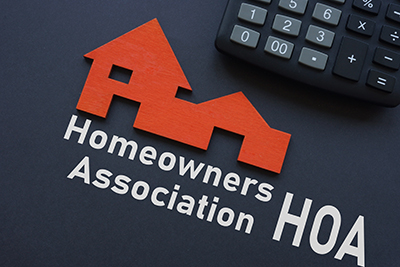 Homeowners Associations (HOAs) play a crucial role in maintaining the quality and value of properties within a community. However, disputes between homeowners and HOAs are not uncommon. Whether it’s about fees, maintenance responsibilities, or compliance with community rules, knowing how to effectively handle these disputes is essential for a harmonious living environment and the protection of your property rights. Here’s a step-by-step guide to navigating HOA disputes.
Homeowners Associations (HOAs) play a crucial role in maintaining the quality and value of properties within a community. However, disputes between homeowners and HOAs are not uncommon. Whether it’s about fees, maintenance responsibilities, or compliance with community rules, knowing how to effectively handle these disputes is essential for a harmonious living environment and the protection of your property rights. Here’s a step-by-step guide to navigating HOA disputes.
Understand Your HOA’s Governing Documents
The first step in resolving any HOA dispute is to thoroughly understand the association’s governing documents. These typically include:
- Covenants, Conditions, and Restrictions (CC&Rs): Outline the rules and regulations for the community.
- Bylaws: Describe how the HOA is run, including the election of board members and meeting procedures.
- Rules and Regulations: Provide specific guidelines on issues like landscaping, parking, and noise.
Familiarize yourself with these documents to ensure you are aware of your rights and obligations, as well as the HOA’s responsibilities.
Open Lines of Communication
Effective communication is key to resolving disputes. Approach the HOA board or management company calmly and respectfully to discuss the issue. Clearly state your concerns and provide any supporting documentation. Here are some tips for productive communication:
- Be Specific: Clearly articulate the problem and the outcome you are seeking.
- Stay Calm: Keep emotions in check to facilitate a constructive dialogue.
- Document Everything: Keep records of all communications, including emails and letters.
Follow Formal Complaint Procedures
If direct communication does not resolve the issue, follow the formal complaint procedures outlined in your HOA’s governing documents. This usually involves submitting a written complaint to the board. Include the following in your complaint:
- A detailed description of the issue
- References to relevant sections of the governing documents
- Any supporting evidence or documentation
- Your desired resolution
Attend HOA Meetings
HOA meetings are an excellent opportunity to voice your concerns and seek resolution. Request to be added to the agenda to discuss your issue. Be prepared to present your case succinctly and provide any necessary documentation. Engaging in these meetings demonstrates your commitment to resolving the dispute and understanding the board’s perspective.
Mediation and Arbitration
If internal resolution efforts fail, consider mediation or arbitration. Many HOAs have provisions for alternative dispute resolution (ADR) in their governing documents. Mediation involves a neutral third party helping both sides reach a mutually acceptable solution. Arbitration, on the other hand, is a more formal process where an arbitrator makes a binding decision. Benefits of ADR include:
- Cost-Effective: Generally less expensive than litigation.
- Time-Saving: Quicker resolution compared to court proceedings.
- Confidential: Keeps disputes private, unlike public court cases.
Legal Action
As a last resort, you may need to pursue legal action. Consult with a real estate attorney experienced in HOA disputes to evaluate the merits of your case and understand the potential costs and outcomes. Legal action can be time-consuming and expensive, so it should only be considered when all other avenues have been exhausted.
Tips for Preventing Future Disputes
Prevention is better than cure. Here are some tips to avoid future HOA disputes:
- Stay Informed: Regularly review HOA communications and updates.
- Participate: Attend HOA meetings and consider serving on the board.
- Comply: Follow the community rules and regulations.
- Communicate: Maintain open and respectful communication with the HOA and neighbors.
Conclusion
Dealing with HOA disputes can be challenging, but with a clear understanding of your rights, effective communication, and a willingness to seek resolution, you can navigate these conflicts successfully. Remember, the goal is to maintain a peaceful and thriving community for everyone involved. If you find yourself in a particularly complex dispute, don’t hesitate to seek professional legal advice to protect your interests.
By following these steps, you can address HOA disputes effectively and ensure a positive living environment in your community.
Ben Winter, P.A. focuses its practice in the areas of real estate law, Social Security Disability and Workers Compensation in St Petersburg, Florida. For more information, go to our web site www.benwinterlaw.com or call (727) 822-0100.
